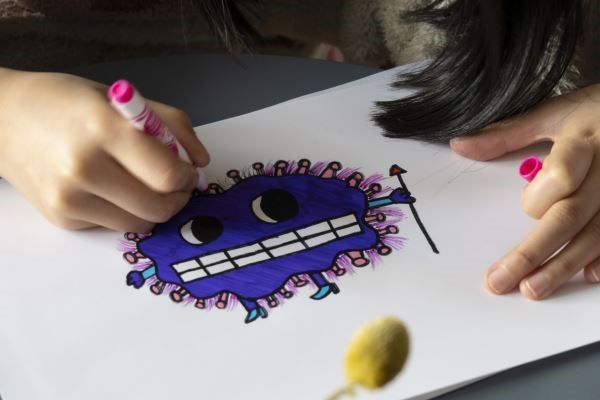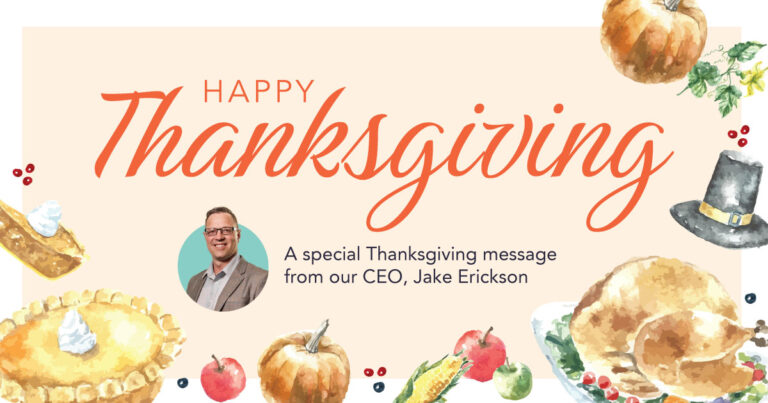
How to Talk to Kids about Covid-19 and Back-to-School
Many parents and caregivers may be wondering how to talk to children about Covid-19, especially with all of the conversations taking place about the best and safest way for kids, teachers, and staff members to return to school.
To encourage calmness, Bingham Healthcare’s Travis Adams, PhD, clinical psychologist, shares some reassuring ways to speak to children and teenagers about Covid-19.
“Children and teenagers need adults’ love and attention always, but especially during difficult times,” Dr. Adams says. “Give them this extra time and attention. Have a rational conversation with your children or grandchildren about the coronavirus.”
But how? Nowadays, they may be asking more questions about Covid-19. They may have even overheard adults talking about the virus, or through social media and the TV. And, now, people are wearing face masks in public as a precautionary measure to help protect others. Plus, face masks just became one extra item on those back-to-school lists.
“First of all, parents don’t need to avoid talking about the virus, especially with their school-age child,” Dr. Adams says. “In fact, not talking about it may cause children to worry more, because they may get misinformation from friends or other sources. This is your opportunity to set an appropriate emotional tone that you know your child will respond to. Plus, you can provide them with fact-based information that is more reassuring than what they’re getting from other sources.”
What are the appropriate ages to talk to kids about this virus? Dr. Adams suggests that parents would typically want to intentionally talk with children who are school-age (around 4-5 years old and older).
LET YOUR CHILDREN ASK QUESTIONS
Instead of volunteering information at first, you may simply begin by asking your child what they know about the virus or asking them what questions they might have. Answer as honestly and clearly as possible, and don’t worry if you don’t have all of the answers. You can always research them.
“Starting the conversation by asking what they know or what questions they might have, will help you understand how they’re feeling and what they’ve heard about Covid-19,” Dr. Adams says. “Your primary goal is to help understand and to do your best to alleviate any misconceptions or unrealistic fears they might have.”
Also let your children know that older adults, such as grandparents, know what to do and can take care of themselves. Let your children know that health experts around the globe—doctors, nurses, and teachers—are providing new information about Covid-19 on a daily basis.
When talking in the presence of your children, please do your best to manage your own frustration, stress, and anxiety levels. If you’re stressed, your kids will pick up on that and it may negatively impact them. You want to create a sense of calm for them. Also, choose your words carefully, using a positive tone.
“Also, this is a good time to teach your children and teenagers a few important lessons,” Dr. Adams says. “Talk to them about compassion and sharing, as well as letting them know there are healthy ways to deal with any anxiety, nervousness, and stress.”
TALK ABOUT THE ACTIONS YOU’RE TAKING TO STAY SAFE
“Kids feel stronger, more confident, and have less anxiety when they know what to do to keep themselves safe,” Dr. Adams says.
For instance, you can tell them that the coronavirus is transmitted mostly by coughing and touching surfaces. Remind them that they are taking care of themselves by washing their hands with soap and water for 20 seconds (or the length of two “Happy Birthday” songs or the chorus to a favorite song) when they come in from outside, before they eat, and after blowing their nose, coughing, sneezing, or using the bathroom.
Also, let them know about the benefits of wearing a face covering at school and in public, and how they can take an extra precaution by caring hand sanitizer in their backpacks, and using it throughout the day. They will be learning these safety measures in school, as well as social distancing, but it’s important to reinforce and demonstrate those behaviors at home, too.
TRY TO KEEP A ROUTINE AT HOME
Routine makes most people, especially children, feel safe.
After a jarring past several months, many routines have most likely been disrupted. As we approach the fall, now is the best time to start re-establishing healthy routines. Try to start keeping to normal sleep and meal times and focus on activities that make your kids feel happy—like playing outside, reading a book, watching a favorite TV show or movie, or playing board games.
“These types of activities are an essential part of keeping kids happy and healthy,” Dr. Adams says. “While this is and has been a really disruptive and challenging time, this is still an opportunity to connect with your children through fun activities and mealtimes.”
Do your best to continue to find the positives in everything you do and talk about them as a family.
“To end the conversation with your children, tell them that you will continue to have conversations with them about coronavirus,” Dr. Adams says. “And be sure to tell them if they have any more questions to please ask you at any time.”
ABOUT TRAVIS R. ADAMS, PHD, ABPP
Dr. Adams is a Harvard-trained, licensed, and board-certified clinical psychologist who provides continuing and comprehensive mental and behavioral care for children, adolescents, and adults of all ages at Bingham Healthcare. As one of only three board-certified child and adolescent psychologists in the state of Idaho, he is uniquely qualified to provide comprehensive psychological care to a pediatric population. He also has extensive experience working with couples, families, and military veterans.
Dr. Adams welcomes patients in Idaho Falls and Blackfoot. To schedule an appointment in Idaho Falls, please call (208) 535-3638 and in Blackfoot: (208) 782-2991. For more information about Dr. Adams, visit https://binghamhealthcare.org/doctor/travis-r-adams-phd-abpp/.
BINGHAM HAS TEAM OF MENTAL HEALTH COUNSELORS THROUGHOUT EASTERN IDAHO
Bingham’s team of counsellors are here to talk to parents and kids. If you or a loved one could benefit from talking to a mental health counsellor, please reach out. For more information about Bingham’s mental health counselors, please call (208) 785-4100 or visit our Mental Health and Counseling Services page.
Our content is reviewed regularly and is updated when new and relevant evidence is made available. This information is neither intended nor implied to be a substitute for professional medical advice. Always seek the advice of your physician or other qualified health provider prior to starting any new treatment or with questions regarding a medical condition.
Return to Articles


